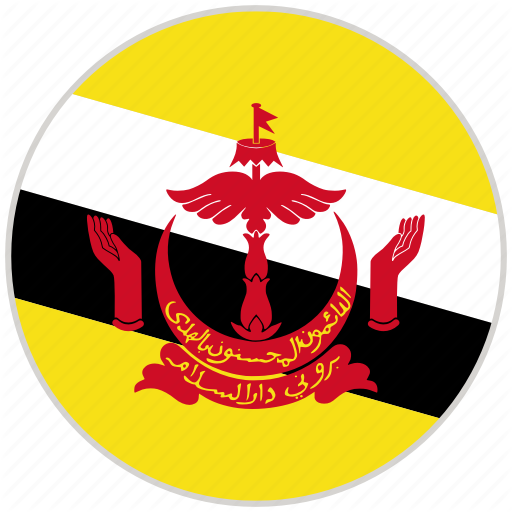Working Group Report on East Asian Investment Cooperation
Introduction
NEAT Working Group Meeting on East Asian Investment Cooperation was held in Beijing, China on 3 July 2009. NEAT members and experts from 12 of the ASEAN + 3 countries took part in this meeting. There were an opening session, three panel discussions, and a wrap-up session.
Mr. Zhao Jinping, Deputy Director of the Foreign Economic Relations Department, Development Research Center of the State Council of China, delivered a keynote speech at the Opening Session, in which he reviewed the impact of the global crisis on China, China’s way of thinking and major responses to the crisis, and their influence upon the region.
The three panels were:
1. Global economic recession and its impact on East Asia,
2. Economic recession and East Asian Investment cooperation: challenges and opportunities,
3. Policy recommendations to further East Asian investment cooperation.
The participants assessed both the challenges and the opportunities that the global recession brought to East Asia, shared their views on how to strengthen East Asian investment cooperation to cope with the challenges, and put forth policy recommendations to take the opportunities that have arisen along with the crisis.
I. Challenges: the development of global recession and its impact upon East Asia
The participants agreed that the global financial and economic performance even further deteriorated, and delivered an even more severe blow to the economy of East Asia.
The global economic recession continues to deteriorate. The financial crisis has spread all over the world, and expanded from the financial sector into the real economy, escalating into an unprecedented severe economic recession after the WWII. Economic growth has been declining sharply. The year 2009 is projected to witness a growth rate of -1.3%, a record low in terms of the declining growth rate in the post-WWII recessions. The financial market has been an undergoing vehement shock. A large number of financial institutions are facing huge loss, bankruptcy or takeover by the governments, which is inevitably reflected in the overall collapse of the global stock market and global foreign exchange market. World trade has sharply contracted, projected to hit -11.0% of growth rate in 2009. The transnational investment has rapidly decreased. According to the UNCTAD projection, FDI will further contract by 30-40% in 2009.
The global recession severely blew the economy of East Asia. It has directly or indirectly inflicted huge loss on the financial institutions in East Asian countries and caused the East Asian stock markets falling completely and the currency markets fluctuating drastically. The credit squeeze, sluggish stock market and contracted investment have made it difficult for East Asian businesses, especially SMEs to raise capital. And, the contracted markets, reduced imports, and re-emergence of trade protectionism in the US and other developed economies, which led to a huge decline in the export in all the East Asian economies. The severe blow against the East Asian financial stability and export expansion finally resulted in a massive slowdown in the East Asian economic growth.
II. Opportunities: Stimulus Packages and expended economic cooperation
It reached a consensus that along with the challenges, the current global recession, on the other hand, has created new opportunities and favorable conditions for East Asia investment cooperation.
In the national level, the East Asian countries are committed to stimulus policies for economic recovery. They have staged unprecedented economic stimulus packages, consisting financial and monetary policies as well as industrial rejuvenation plans to stimulate investment and economic growth.
In the regional level, transnational economic cooperation is expanded. The global financial crisis and economic recession have incurred severe impacts on East Asia and in turn promoted further economic cooperation. Regional trade cooperation is deepening. The FTA agreements between ASEAN and China, ASEAN and Japan, as well as ASEAN and South Korea are being implemented as planned. Regional monetary cooperation is further pushed forward. Regional reserve pooling arrangement saw remarkable breakthroughs. The ASEAN+3 Financial Ministers inched the time limit to build up the regional foreign exchange reserve pool by the end of the year. Regional investment cooperation gains continued momentum. Investment negotiations between China, South Korea and ASEAN have been concluded. The China-ASEAN Investment Cooperation Fund has been established to support infrastructure building in the region. Asian Bond Market building is making progress. ABMI aims to promote the use of Asian savings in Asia for regional economic growth. The Intergovernmental Agreement on the Trans-Asian Railway Network has come into effect to directly promote East Asian investment cooperation on related projects.
III. Policy Recommendations
Based on the full understanding and accurate assessment of the challenges and the opportunities, the working group made following policy recommendations to further East Asia investment cooperation.
1. Improve the investment environment
It is agreed that the NEAT member countries should make an action agenda to improve the investment environment of the region.
First, the participants proposed to build an institutional framework for East Asia investment cooperation within the East Asia FTA framework. Under the vision of full regional economic integration, the institution building for investment cooperation in East Asia should pursue a couple of goals, such as to set up a regional system of non-biased, transparent and binding policies, laws and regulatory rules on outward investment, to put in place a proper and well-advised, approval, supervision and dispute settlement mechanisms, to effectively monitor implementation of investment cooperation agreements, and to promulgate macroeconomic policies facilitating regional investment cooperation.
To be practical, the participants proposed that the institution building could begin with major cooperation fields and major cooperation projects. At present, it is pressing to build three institutions: 1. East Asia investment cooperation institution, an inter-governmental organization within the 10+3 framework combining the resources of business and academia, 2. East Asia investment service networks, a system consisting of East Asia modern logistics networks, East Asia investment information networks, and East Asia investment cooperation parks networks, 3. East Asia investment disputes settlement center, a third party coordinating the settlement of problems, frictions and disputes companies meet with investment in East Asia, especially those between investors and host countries.
Second, it is proposed to strengthen the coordination of the macroeconomic policies, further cutting costs of competing nations and preventing competition from turning into bidding wars. The participants agreed that the NEAT member countries should build coordinative capacities of such mechanisms, as 10+3 Finance Ministers’ Meeting, the independent supervision unit of the foreign reserve pool, the ADB, etc. Again, it is recommended to expand 10+3 Finance Ministers’ Meeting to be 10+3 Finance Ministers and Central Bank Governors’ Meeting, a more inclusive dialogue mechanism.
Third, it is proposed to establish a training center for investment cooperation in East Asia, as a means to develop high quality human resources and improve the efficiency of investment administration and management.
2. Open and broaden markets for FDI
The participant agreed to make joint efforts to facilitate the financing for the East Asia investment cooperation and proposed that NEAT member countries should work together to achieve free capital flow and open investment, to give non-discriminatory treatment to each other with limited exceptions, and to eliminate restrictive investment measures on investment.
First, it is proposed to make use of the newly founded CGIM to expand the scale of ABM, to attract more idle capitals into regional investment.
Second, it is proposed to remove the investment barriers between the countries. In detail, the participants agreed that the NEAT member countries should take the measures to improve the ABM infrastructure and institution building capacities of the less developed countries, to encourage transnational investment in bonds, to remove the barriers from financial supervision, taxation, laws and institutions, and financial infrastructure facilities, to improve bond market infrastructure facilities for clearance, settlement, accounting and information publishing, and to safeguard more effectively loaners’ lawful rights, and to make the ABM a safer, faster, and more efficient financial channel for East Asia investment cooperation.
Third, it is proposed to expand communications and cooperation among the securities exchange markets of the region, to allow and even encourage good-credit companies to be listed in more than one securities exchange market and to facilitate cross-border financing activities.
3. Strengthen infrastructure investment cooperation
First, on the occasion of the founding of China-ASEAN Investment Cooperation Fund, it is proposed to accelerate and strengthen cooperation on infrastructure investment and to explore the possibilities of building East Asia investment cooperation fund within the 10+3 framework.
Second, based on the inter-governmental agreement on Trans-Asian Railway Network, it is proposed to strengthen East Asia investment cooperation on the relevant projects.
Third, it is proposed to take advantage of the East Asian countries’ stimulus policies to strengthen infrastructure investment cooperation.
4. Strength investment cooperation for SMEs.
It is proposed to coordinate the East Asian countries’ investment policies, especially the financial policies aiming at supporting SMEs, so as to give effective financial support to local SMEs, to explore the possibilities of the founding of East Asia SMEs Investment Cooperation Fund, to organize expositions, exhibitions and forums to provide SMEs with platforms to “showcase, trade, communicate and cooperate”, to set up more exemplary projects of East Asia SMEs investment parks, and to support SMEs to benefit more from technological transfers.
5. Promote East Asia green investment cooperation
The working group meeting agreed that the governments of the East Asia countries should promulgate more active and effective policies to encourage investment responsible to environment, and to strengthen regional investment cooperation on green industries. To this end, it is proposed that the governments should recognize green industries as major state-supported industries and investment areas, to encourage private companies to invest in low carbon economy, to improve R&D and transfer capacities of green technologies, to implement more favorable taxation and loaning policies to award green efforts, and to set up a green industry structure, development modes and consumption modes that fit the conditions in East Asia.
Conclusion
In the group meeting, there is a unanimous call for “greater regional cooperation and better regional coordination”. Participants agreed that independent reactions lead to nothing but protectionism and the countries should collaborate closely to tackle crisis with joint efforts. In the sense, global recession not only brings challenges but also opportunities to East Asian investment cooperation.











.png)



.png)




